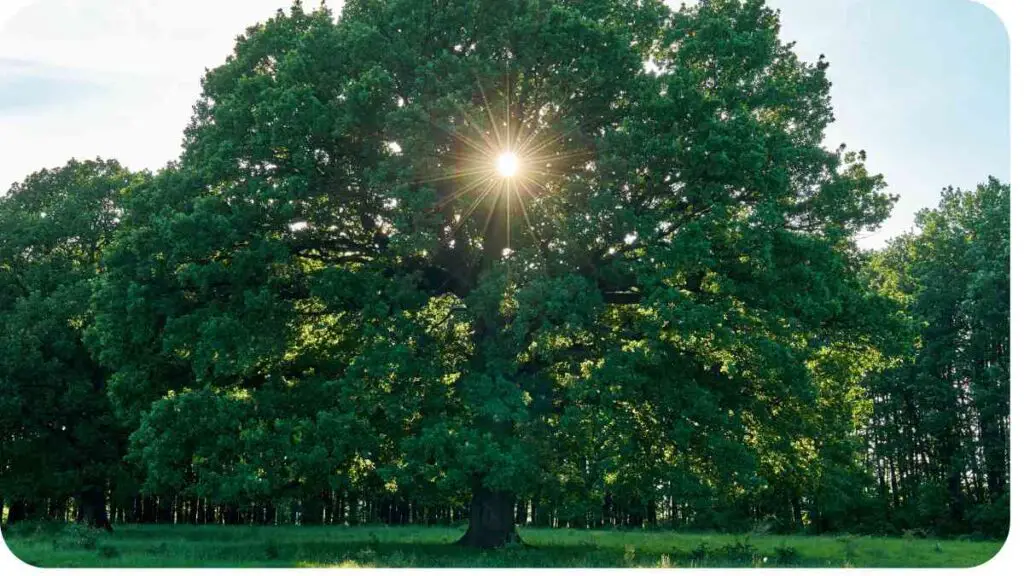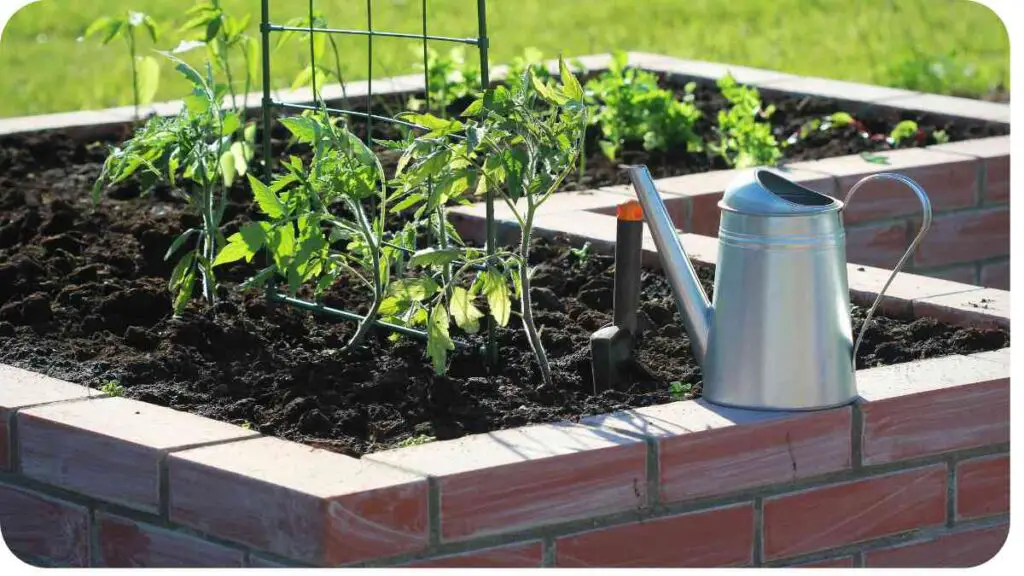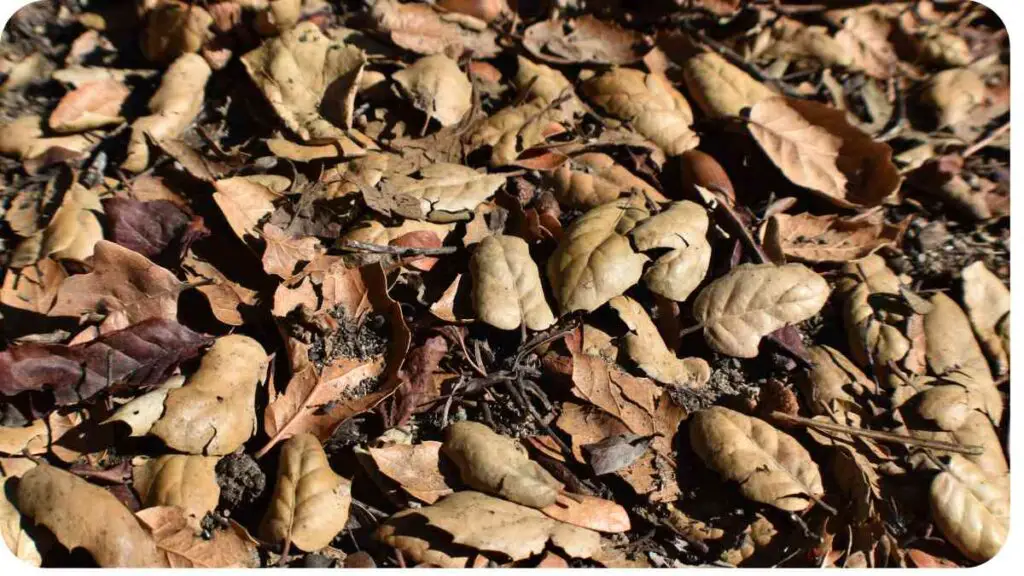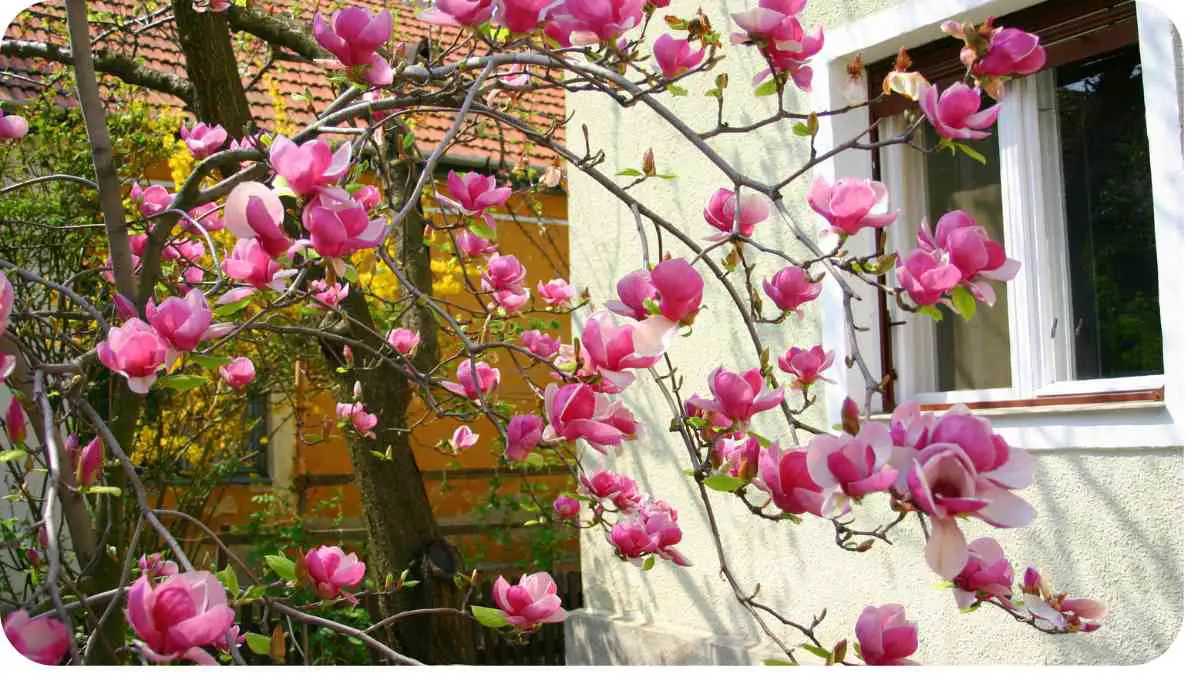Curious about the role oak leaves play in your flower beds? Discover the untapped potential of these humble leaves and how they can transform your garden. In this guide, we’ll debunk myths and unveil the true benefits of oak leaves for nurturing flourishing flower beds.
Discover how to tend to your flower garden and how to get rid of weeds in flower beds for a thriving and picturesque outdoor space. Ready to separate fact from fiction and give your flower beds the care they deserve? Dive deep into the topic and find out if oak leaves are truly bad for flower beds.
| Takeaways |
|---|
| Oak leaves are not toxic to plants, and can actually provide valuable nutrients to the soil. |
| Oak leaves can contribute to soil acidity as they decompose, so it’s important to monitor pH levels and manage acidity if necessary. |
| Oak leaves can be used as a natural mulch, added to compost, or incorporated directly into the soil. |
| Leaving oak leaves on your lawn can be beneficial for your grass, but they should be raked up if they are matted and blocking sunlight. |
| Oak leaves do not attract pests to gardens, but they can provide habitat for insects and other small animals. |
Oak Leaves: Beneficial Additions to Flower Beds

Oak leaves are actually beneficial for garden soil, as they contain micronutrients vital for plant growth. Incorporating them into your garden is simple: rake them into a shredder or run over them with a power mower for optimal use.
Alternatively, add them to your compost pile after shredding, as whole leaves may take longer to decompose. Their nutrient-rich composition benefits shallow-rooted plants like flowers and vegetables. Oak leaves also complement other mulches like pine needles or hay, providing a versatile option for enhancing soil health in flower beds.
“Leaves can be a great addition to garden soil, but it’s important to know which ones to use and how to use them. Our article on Are Leaves Good for Garden Soil Explained can help you understand the benefits and risks of using leaves in your garden.”
1. Oak Leaves are Nutrient Rich
Oak leaves are nutrient powerhouses, boasting high levels of essential elements crucial for plant health. They are rich in nitrogen, phosphorus, and potassium, the primary macronutrients plants need for growth and development.
Additionally, oak leaves contain abundant amounts of calcium, magnesium, iron, and copper, vital micronutrients essential for various metabolic processes within plants. Furthermore, oak leaves are a source of manganese, zinc, and boron, further enriching the soil and promoting robust plant growth. Harnessing the nutrient richness of oak leaves can significantly enhance the fertility and vitality of your flower beds.
2. Oak Leaves Are Small
Despite their size, oak leaves pose no challenge when it comes to garden maintenance. Their small stature makes them easy to rake and handle, simplifying the process of incorporating them into your flower beds.
Furthermore, oak leaves compost efficiently, enriching your flower beds with valuable nutrients as they decompose. If you’re seeking a leaf mulch that is both compact and convenient to store, look no further than oak leaves. Their manageable size and versatility make them an ideal choice for enhancing the health and aesthetics of your flower beds.
“Pine needles are a common sight in many gardens, but are they really bad for your garden soil? Our article on Are Pine Needles Bad for Garden Soil explores the truth behind this myth and provides tips on how to use pine needles effectively in your garden.”
3. Oak Leaves Are Good For Raised Beds

When it comes to raised beds, oak leaves reign supreme as an excellent mulching option. Unlike traditional hardwood tree bark, oak leaves boast a high nitrogen content and are lightweight, preventing soil compaction while enriching it with essential nutrients.
Additionally, oak leaves decompose rapidly due to their high acidity, further enhancing soil fertility in raised beds. If you’re gardening in containers or raised beds, opting for oak leaves as mulch is a wise choice, ensuring optimal growing conditions for your plants while simplifying garden maintenance.
4. Oak Leaves Are Decayed Naturally
Oak leaves undergo natural decomposition facilitated by fungi and bacteria, enriching the soil with organic matter and essential nutrients.
Unlike some leaves that need to be cleared before winter, oak leaves can remain on the ground without adverse effects. Moreover, it’s important to note that oak leaves are non-toxic and pose no harm to people or pets if accidentally ingested.
Embracing the natural decay of oak leaves contributes to a healthier garden ecosystem and eliminates the need for unnecessary leaf removal, simplifying garden maintenance.
5. Oak Leaves Work Well with Other Mulches
While oak leaves excel as mulch for flower beds, it’s essential to explore a range of options to find what works best for your garden. However, oak leaves offer unique advantages that make them an excellent choice alongside other mulches.
- Ideal for Raised Beds: Oak leaves stand out as an ideal mulch for raised beds due to their deep color and fine texture, preventing them from blowing away easily and providing lasting benefits to soil health.
- Perfect for Borders and Hedgerows: The dark hue of oak leaves lends itself well to edging flower beds and defining garden areas. Whether used as borders or hedgerows, oak leaves add visual appeal and complement various landscape designs, distinguishing flower beds from lawns or pathways.
“Weeds can be a constant headache for any gardener, but there are ways to control them without resorting to harmful chemicals. Check out our expert advice on How to Get Rid of Weeds in Flower Beds for tips on natural weed control methods that are safe for your plants and the environment.”
6. Oak Leaves are Great for Hedges and Borders
The soft and supple texture of oak leaves makes them a versatile option for creating hedges and borders in your garden landscape. Whether you’re aiming to establish a living wall or conceal a fence, oak leaves offer an attractive solution.
Additionally, oak leaves foster an ideal environment for native plants, thriving in the nutrient-rich soil they create. With oak trees boasting deep roots, the fallen leaves contribute ample organic material to enrich garden soil over time.
Furthermore, utilizing oak leaves as mulch around roses and other flowers offers a dual benefit: slow decomposition provides continuous nutrients to plant roots while effectively suppressing weed growth. Embrace the natural beauty and practicality of oak leaves to elevate the aesthetics and health of your garden hedges, borders, and flower beds.
7. Oak Leaves are Deeply Colored
Oak leaves come in a spectrum of rich colors, including dark green, red, and brown, influenced by the oak tree species and environmental factors such as soil composition and light exposure.
The deep hues of oak leaves make them an excellent choice for natural mulch in flower beds. Not only are they sturdy and resilient, but their dark colors also serve to effectively suppress weed growth, maintaining the pristine appearance of your flower beds.
When using oak leaves as mulch, it’s advisable to lay down weed barrier material first to prevent the mulch from becoming buried under weeds over time.
Furthermore, consider incorporating oak leaf clippings into compost piles or worm bins to enrich the soil with additional nutrients. As long as they are free from pesticides, oak leaves and other wild plants offer a wealth of beneficial properties for enhancing soil health and promoting plant growth. Embrace the vibrant hues of oak leaves to elevate the beauty and vitality of your garden landscape.
“Cornmeal is a surprising solution for keeping your flower beds free of weeds and pests. Learn more about the benefits of cornmeal and how to use it in our expert advice article on Is Cornmeal Good for Flower Beds and keep your garden healthy and beautiful.”
8. Oak Leaves Don’t Need to be Removed Before Winter
Planning your garden entails considering the duration leaves remain on the ground. While some plants benefit from a deep layer of mulch in winter, others require exposed roots for new growth in spring. However, oak trees defy these norms; their leaves, though not nutrient-rich, withstand freezing temperatures, eliminating the need for pre-winter removal.
Throughout the year, oak leaves serve as excellent mulch for flower beds, gradually decomposing into nutrient-rich compost. Additionally, they excel as weed suppressants when placed strategically between creeping plants, such as mint or thyme, preventing weed growth in garden beds and pathways.
While maintaining tidy houseplants involves regular leaf removal, aesthetics alone may not warrant such diligence. Embrace the hardy nature of oak leaves to enhance your garden’s resilience and beauty year-round.
9. Oak Leaves Protect the Soil from Weeds, Insects, and Disease
Oak leaves serve as formidable protectors of garden soil, offering defense against various threats.
- Erosion Prevention: The large and heavy nature of oak leaves makes them effective barriers against soil erosion, safeguarding the integrity of your garden beds.
- Weed Suppression: Oak leaves create an inhospitable environment for weed growth, inhibiting their proliferation and preserving the aesthetic appeal of your garden.
- Insect Deterrence: By forming a dense layer over the soil, oak leaves make it challenging for insects to burrow, reducing the risk of pest infestations and damage to plant roots.
- Disease Mitigation: Studies have shown that oak leaves possess properties that can inhibit the spread of certain plant diseases, contributing to a healthier garden ecosystem.
Harness the protective qualities of oak leaves to fortify your garden against common threats, ensuring its resilience and vitality year-round.
10. Composted Oak Leaves Create a Good PH Balance In Garden Soil

Composting oak leaves not only enriches garden soil but also plays a crucial role in maintaining pH balance.
- pH Regulation: Oak leaves, being acidic, counterbalance the alkaline nature of other organic matter in compost, ensuring a harmonious pH level conducive to plant growth.
- Rapid Decomposition: With a high nitrogen content, oak leaves facilitate swift decomposition in the compost pile, transforming into nutrient-rich fertilizer without the need for pre-winter removal.
“Mowed grass can quickly become a nuisance in your flower beds, but there are easy ways to keep it out. Our article on How to Keep Mowed Grass Out of Flower Beds provides simple tips and tricks to keep your flower beds looking neat and tidy all season long.”
11. Oak Leaves Are Easy To Find
While oak leaves may not be the conventional choice for mulch, they are readily available and easily obtained, especially if you have oak trees on your property.
- Backyard Bounty: Simply step outside and rake up fallen oak leaves from your backyard. With oak trees shedding leaves abundantly during certain seasons, collecting them is as easy as a stroll in your garden.
- Urban Harvest: Alternatively, gather fallen oak leaves from parks or public spaces where oak trees grow nearby. This convenient option saves time and effort, ensuring a steady supply of mulch for your flower beds.
- Storage Tips: Once collected, store the oak leaves in an open container or bag outdoors, ensuring they are not exposed to excessive moisture to prevent mold formation. For optimal preservation, consider storing them indoors until spring to maintain their freshness and effectiveness as mulch.
Conclusion
In conclusion, the question of whether oak leaves are detrimental to flower beds is unequivocally answered—no, they are not. In fact, oak leaves emerge as valuable assets for gardeners, enriching the soil with nutrients and serving as effective weed suppressants.
Their natural decomposition process eliminates the need for pre-winter removal, simplifying garden maintenance and promoting sustainability. If oak trees grace your property, consider incorporating their leaves into your garden beds, ensuring optimal plant health and vitality.
As you utilize oak leaves in your gardening endeavors, exercise caution to exclude large stems or branches, ensuring a seamless integration into your flower beds.
Embrace the myriad benefits of oak leaves and witness your flower beds flourish with vibrant blooms and thriving greenery.
Further Reading
If you want to learn more about the effects of oak leaves on your garden soil and plants, check out these additional resources:
- Garden Myth: Oak Leaf Toxicity: This blog post debunks the myth that oak leaves are toxic to plants and explains how they can actually be beneficial.
- How Do Oak Leaves Affect Soil pH?: This article explores how oak leaves can affect the pH of your soil and provides tips for managing soil acidity.
- Oak Leaves and Composting: This FAQ from Extension.org answers common questions about composting oak leaves and using them in your garden.
FAQs
Are oak leaves toxic to plants?
No, oak leaves are not toxic to plants. In fact, they can provide valuable nutrients to the soil as they decompose.
Can oak leaves make soil too acidic?
Yes, oak leaves can contribute to soil acidity as they decompose. It’s important to monitor the pH levels of your soil and take steps to manage acidity if necessary.
How can I use oak leaves in my garden?
Oak leaves can be used as a natural mulch, added to compost, or incorporated directly into the soil. Just be mindful of their potential effects on soil acidity.
Can oak leaves attract pests to my garden?
Oak leaves are not known to attract pests to gardens. However, they can provide habitat for insects and other small animals.
Do I need to remove oak leaves from my lawn?
Leaving oak leaves on your lawn can actually be beneficial, as they can provide nutrients to the grass as they decompose. However, you may want to rake them up if they are matted and preventing sunlight from reaching the grass.

For 15 years, Hellen James has worked in the gardening industry as an expert and landscape designer. During her career, she has worked for a variety of businesses that specialize in landscaping and gardening from small firms to large corporations.

